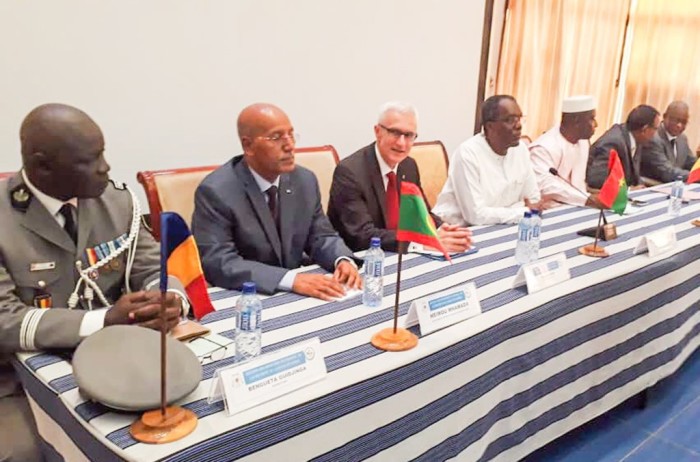WSi News2019-09-12 08:00:18
Terrorism threat is diffuse, dynamic and destabilizing: INTERPOL Chief at G5 Sahel meeting
Addressing the G5 Sahel Ministers of Security, INTERPOL Secretary General Jürgen Stock underlined the need for enhanced sharing of information, particularly biometrics, to combat the terrorism threat.
Al Qaeda and Da'esh-affiliated groups operating across the region, as well as Boko Haram’s southern threat, have made Sahelian countries increasingly vulnerable to insecurity through armed conflict, terrorism and transnational organized crime such as irregular migration, people trafficking and drug smuggling.
Secretary General Stock said the agreement signed earlier this year with the G5 Sahel Permanent Secretariat for INTERPOL to assist the police component had become the most comprehensive initiative the organization had ever undertaken.
This includes the consolidation of the Plateformes de Coopération en Matière de Sécurité (PCMS) with national multi-agency groups which coordinate information sharing against terrorist threats, including bomb-makers and Improvised Explosive Devices in the G5 Sahel countries and regionally.
INTERPOL will also provide operating procedures and training to aid cooperation between the Military Component and Police Component to exploit battlefield information, including biometrics.
“The territorial defeat of Da’esh in Syria and Iraq means the threat has become more diffuse, dynamic and destabilizing,” said Secretary General Stock.
“But it is not about a single group, no matter how deadly. It is not about one conflict, or even a single continent. It is a composite, sophisticated cross-regional threat, where local insurgences and grievances provide fertile ground for terrorist groups.
“The need-to-know and the need-to-share can coexist and bring operational impact across regions, but even the highest quality intelligence cannot be actionable, unless it is effectively streamlined,” concluded the INTERPOL Chief.
INTERPOL pioneered military-to-law enforcement information exchange (Mi-Lex), starting in 2005 with Project Vennlig in Iraq, and later in Afghanistan through Project Hamah.
Project FIRST (Facial, Imaging, Recognition, Searching and Tracking) will also be a key area for development at the national level across the G5 Sahel countries.
Biometric information gathered and shared via Project FIRST has already resulted in matches between previously unconnected individuals within the Sahel and beyond.
In addition, INTERPOL’s databases currently hold details of more than 50,000 foreign terrorist fighters, 3,500 bomb-makers and some 400,000 pieces of terrorist-related information.
Prior to addressing the G5 Sahel Ministers of Security, Secretary General Stock met with Roch Marc Christian Kaboré, President of Burkina Faso and President of the G5 Sahel, as well as Prime Minister Christophe Joseph Marie Dabiré, Minister of Foreign affairs Alpha Barry, and Jean Bosco Kienou, Director General of National Police and President of the G5 Sahel Committee for Defence and Security.
An initiative to extend the implementation of the West African Police Information System (WAPIS) throughout the country was also signed by the INTERPOL Chief and Minister of Security Ousséni Compaoré.
For more information contact:
